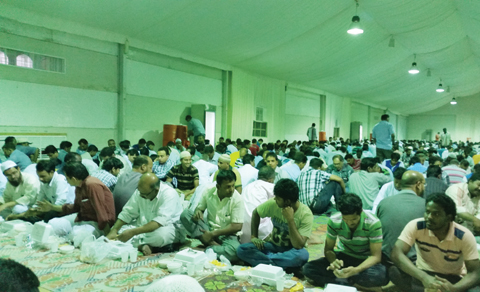 Makkah, Jul 16: Cleaners at the Grand Mosque in Makkah are facing tough time cleaning the mosque’s courtyard because of the large amount of food brought in by visitors to break their fast.
Makkah, Jul 16: Cleaners at the Grand Mosque in Makkah are facing tough time cleaning the mosque’s courtyard because of the large amount of food brought in by visitors to break their fast.
Speaking on the issue, an official at the mosque, said: “Pilgrims and visitors at the Grand Mosque don’t need to bring in their own food as authorities are supplying over a million iftar packs to them daily,” adding that large quantities of food and beverages into the Grand Mosque hamper cleaners from doing their job.
Abdullah Al-Tamih said: “Leftovers and plastic disposables were also posing a difficulty to other worshippers and pilgrims.”
The official advised visitors to deposit their belongings in safe lockers located outside the Grand Mosque, “which are secured with electronic locks and available in different sizes according to the needs of visitors.”
Pilgrims sitting idly in the courtyards of the Grand Mosque hamper the movement of those coming and going to the toilets, he said. He highlighted a number of other issues related to the maintenance of the mosque, including the wastage of zam zam water by pilgrims and the empty cups lying all over the courtyards when there are several bins available for the purpose.
“Owing to the huge crowds present at the Grand Mosque in the evenings, 500 professional employees have been assigned to supervise the cleaning operation immediately after the iftar is over,” he added.





Comments
Add new comment